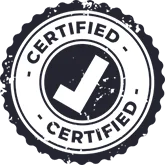Blog
Kurt Walsh Kurt Walsh
0 Course Enrolled • 0 Course CompletedBiography
Free PDF High-quality Docker - DCA - Docker Certified Associate (DCA) Exam Free Practice Exams
P.S. Free & New DCA dumps are available on Google Drive shared by Prep4sureExam: https://drive.google.com/open?id=1tNZ8GhU6XLB9Tw5MPqLuPO093rIfsR3p
We can resort to electronic DCA exam materials, which is now a commonplace, and the electronic materials with the highest quality which consists of all of the key points required for the DCA exam can really be considered as the royal road to learning. Fortunately, the DCA practice test compiled by our company are the best choice for you, you just lucky enough to click into this website, since you are sure to pass the DCA Exam as well as getting the related certification under the guidance of our DCA study guide which you can find in this website easily.
Docker Certified Associate (DCA) certification exam is designed for professionals who want to validate their Docker skills and knowledge. Docker Certified Associate (DCA) Exam certification is offered by Docker, one of the leading containerization platforms in the world. The DCA Exam assesses the candidate's ability to build, ship, and run Docker containers, as well as their understanding of the Docker ecosystem and its associated tools.
What is the duration, language, and format of Docker Certified Associate Exam
- Passing score: 65%
- Type of Questions: Multiple choice, Multiple answers
- language: English
- Number of Questions: 55
- Length of Examination: 90 mins
Exam DCA Bootcamp | Best DCA Study Material
By analyzing the syllabus and new trend, our DCA practice engine is totally in line with this exam for your reference. So grapple with this chance, our DCA learning materials will not let you down. With our DCA Study Guide, not only that you can pass you exam easily and smoothly, but also you can have a wonderful study experience based on the diversed versions of our DCA training prep.
How much Docker Certified Associate Exam Cost
The price of the Docker Certified Associate Exam Cost is 195 USD.
Docker Certified Associate (DCA) Exam Sample Questions (Q52-Q57):
NEW QUESTION # 52
You add a new user to the engineering organization in DTR.
Will this action grant them read/write access to the engineering/api repository?
Solution: Add them to a team in the engineering organization that has read/write access to the engineering/api repository.
- A. No
- B. Yes
Answer: A
Explanation:
Explanation
= I cannot give you a comprehensive explanation, but I can tell you that the question is about Docker Trusted Registry (DTR), which is a secure and scalable image storage solution for Docker Enterprise1. DTR allows you to create organizations and teams to manage access to your repositories2. Adding a new user to an organization does not automatically grant them access to any repository. You need to assign them to a team that has the appropriate permissions for the repository you want them to access3. Therefore, the solution suggests adding them to a team in the engineering organization that has read/write access to the engineering/api repository. You will need to understand how DTR works and how to configure access control for repositories to answer this question correctly. References: You can find some useful references for this question in the following links:
* Docker Trusted Registry overview
* Create and manage organizations and teams
* Manage access to repositories
NEW QUESTION # 53
Will this command list all nodes in a swarm cluster from the command line?
Solution: 'docker node Is'
- A. No
- B. Yes
Answer: A
NEW QUESTION # 54
Are these conditions sufficient for Kubernetes to dynamically provision a persistentVolume, assuming there are no limitations on the amount and type of available external storage?
Solution: A default provisioner is specified, and subsequently a persistentVolumeClaim is created.
- A. No
- B. Yes
Answer: A
Explanation:
= The conditions are not sufficient for Kubernetes to dynamically provision a persistentVolume, because they are missing a StorageClass object. A StorageClass object defines which provisioner should be used and what parameters should be passed to that provisioner when dynamic provisioning is invoked. A persistentVolumeClaim must specify the name of a StorageClass in its storageClassName field to request a dynamically provisioned persistentVolume. Without a StorageClass, Kubernetes cannot determine how to provision the storage for the claim. References:
* Dynamic Volume Provisioning | Kubernetes
* Persistent volumes and dynamic provisioning | Google Kubernetes Engine ...
* Dynamic Provisioning and Storage Classes in Kubernetes or Dynamic Provisioning and Storage Classes in Kubernetes
NEW QUESTION # 55
Is this a type of Linux kernel namespace that provides container isolation?
Solution: Storage
- A. No
- B. Yes
Answer: A
Explanation:
= Storage is not a type of Linux kernel namespace that provides container isolation. Linux namespaces are a feature of the Linux kernel that partitions kernel resources such that one set of processes sees one set of resources while another set of processes sees a different set of resources1. The feature works by having the same namespace for a set of resources and processes, but those namespaces refer to distinct resources. Since kernel version 5.6, there are 8 kinds of namespaces: mount, UTS, IPC, PID, network, user, cgroup, and time2. Each kind of namespace isolates a different aspect of the system, such as file system mounts, host and domain names, inter-process communication, process IDs, network interfaces, user and group IDs, cgroups, and system time2. Storage is not one of them. Reference:
1: Linux namespaces - Wikipedia
2: Namespaces - The Linux Kernel documentation
NEW QUESTION # 56
You configure a local Docker engine to enforce content trust by setting the environment variable DOCKER_CONTENT_TRUST=1.
If myorg/myimage: 1.0 is unsigned, does Docker block this command?
Solution: docker image import <tarball> myorg/myimage:1.0
- A. Yes
- B. No
Answer: A
Explanation:
Docker Content Trust (DCT) is a feature that allows users to verify the integrity and publisher of container images they pull or deploy from a registry server, signed on a Notary server1. DCT is enabled by setting the environment variable DOCKER_CONTENT_TRUST=1 on the Docker client. When DCT is enabled, the Docker client will only pull, run, or build images that have valid signatures for a specific tag2. However, DCT does not apply to the docker image import command, which allows users to import an image or a tarball with a repository and tag from a file or STDIN3. Therefore, if myorg/myimage:1.0 is unsigned, Docker will not block the docker image import <tarball> myorg/myimage:1.0 command, even if DCT is enabled. This is because the docker image import command does not interact with a registry or a Notary server, and thus does not perform any signature verification. However, this also means that the imported image will not have any trust data associated with it, and it will not be possible to push it to a registry with DCT enabled, unless it is signed with a valid key. References:
* Content trust in Docker
* Automation with content trust
* [docker image import]
* [Content trust and image tags]
NEW QUESTION # 57
......
Exam DCA Bootcamp: https://www.prep4sureexam.com/DCA-dumps-torrent.html
- Go for DCA Free Practice Exams to Get 100% Pass in Your DCA Exam 🕡 Search for ( DCA ) and easily obtain a free download on ➤ www.pass4leader.com ⮘ 🦑Reliable DCA Guide Files
- DCA Reliable Test Prep 😆 DCA Reliable Test Prep 🏡 DCA Exam Score 🌂 Open ⮆ www.pdfvce.com ⮄ and search for ✔ DCA ️✔️ to download exam materials for free 🌀DCA Reliable Test Prep
- Docker DCA Dumps with Practice Test Questions [2025] 🐗 Search for ⇛ DCA ⇚ and obtain a free download on 【 www.testkingpdf.com 】 🍮DCA Exam Questions Fee
- Go for DCA Free Practice Exams to Get 100% Pass in Your DCA Exam 🎈 ⮆ www.pdfvce.com ⮄ is best website to obtain ✔ DCA ️✔️ for free download 🧼DCA Discount
- Get Docker DCA Practice Test To Gain Brilliant Result [2025] ⚾ Search on ▛ www.torrentvce.com ▟ for { DCA } to obtain exam materials for free download 😿DCA Reliable Study Guide
- Pass Guaranteed Quiz DCA - High Pass-Rate Docker Certified Associate (DCA) Exam Free Practice Exams 🐢 Open website ➤ www.pdfvce.com ⮘ and search for ➥ DCA 🡄 for free download 📰DCA Exam Questions Fee
- Updated DCA Free Practice Exams offer you accurate Exam Bootcamp | Docker Certified Associate (DCA) Exam 🐡 Open “ www.dumpsquestion.com ” and search for ⇛ DCA ⇚ to download exam materials for free 🕛DCA Hot Spot Questions
- Cost Effective DCA Dumps 🤽 DCA Top Questions 🎽 DCA Reliable Real Test 🙁 Search for ⇛ DCA ⇚ and download it for free immediately on ➠ www.pdfvce.com 🠰 🍊DCA PDF Cram Exam
- How to Crack Docker DCA Certification Exam Easily? 🍠 Search for { DCA } on ⇛ www.free4dump.com ⇚ immediately to obtain a free download 💽DCA Hot Spot Questions
- 100% Pass Marvelous Docker DCA Free Practice Exams 🩱 Search for 「 DCA 」 and easily obtain a free download on ➡ www.pdfvce.com ️⬅️ 😥DCA Certification Exam Infor
- Pass Guaranteed Quiz DCA - High Pass-Rate Docker Certified Associate (DCA) Exam Free Practice Exams ❎ Copy URL ▶ www.exams4collection.com ◀ open and search for ➠ DCA 🠰 to download for free 🧃DCA Discount
- cou.alnoor.edu.iq, avadavi493.dailyblogzz.com, web.newline.ae, elearning.eauqardho.edu.so, bearvitalhealth.com, paint-academy.com, ucgp.jujuy.edu.ar, courses.mysupersystem.com, www.wcs.edu.eu, courses.thevirtualclick.com
BTW, DOWNLOAD part of Prep4sureExam DCA dumps from Cloud Storage: https://drive.google.com/open?id=1tNZ8GhU6XLB9Tw5MPqLuPO093rIfsR3p

